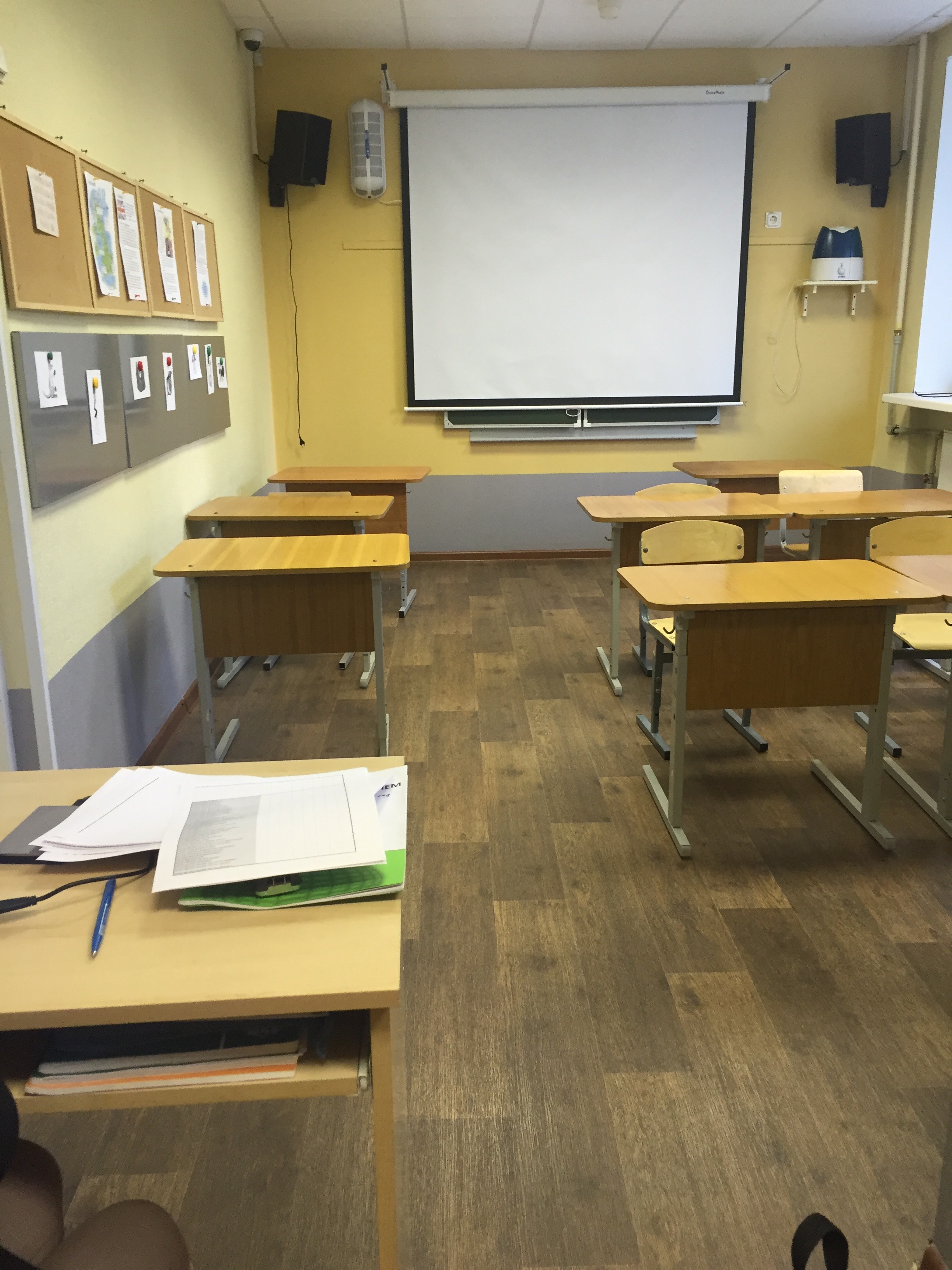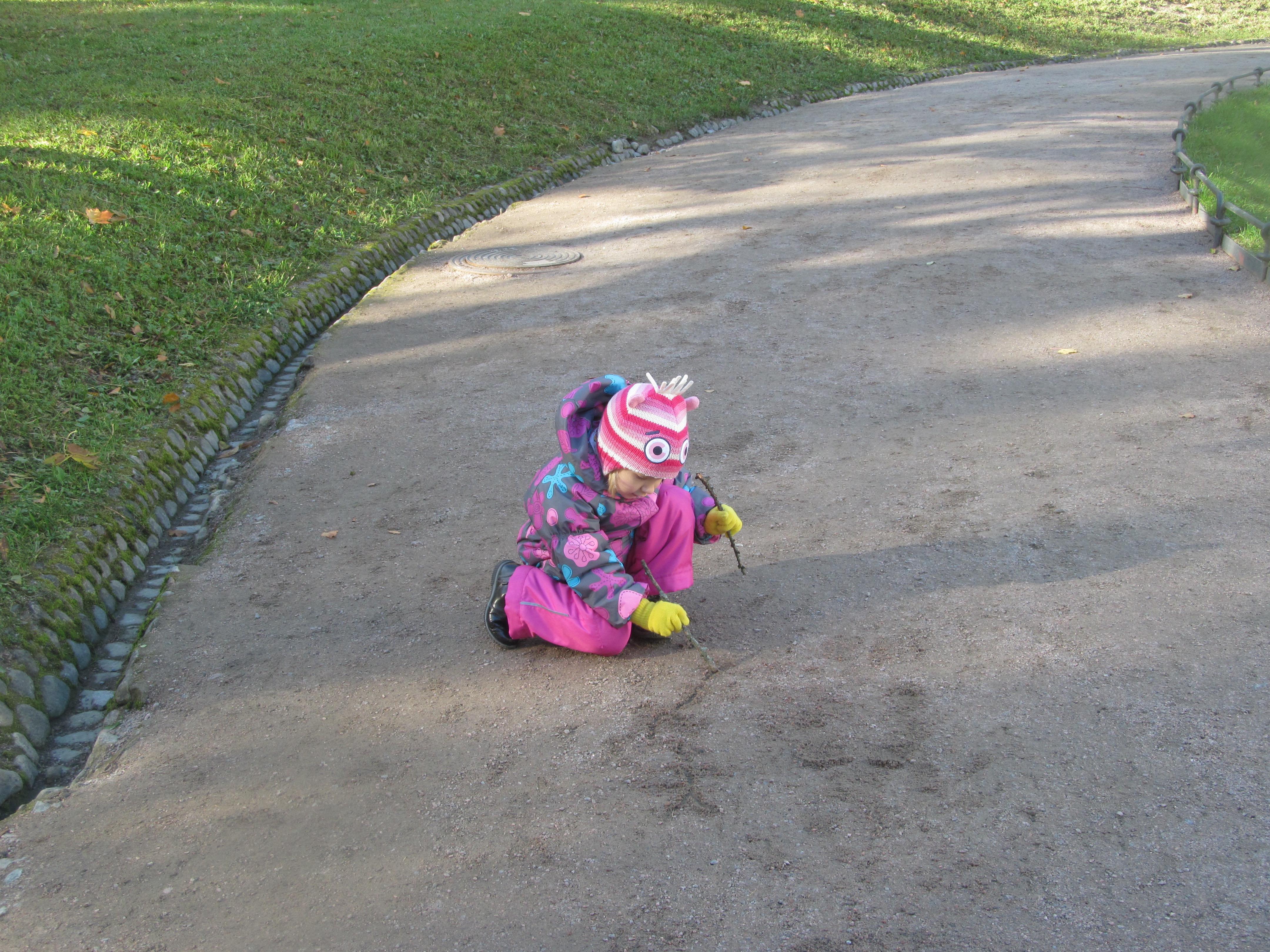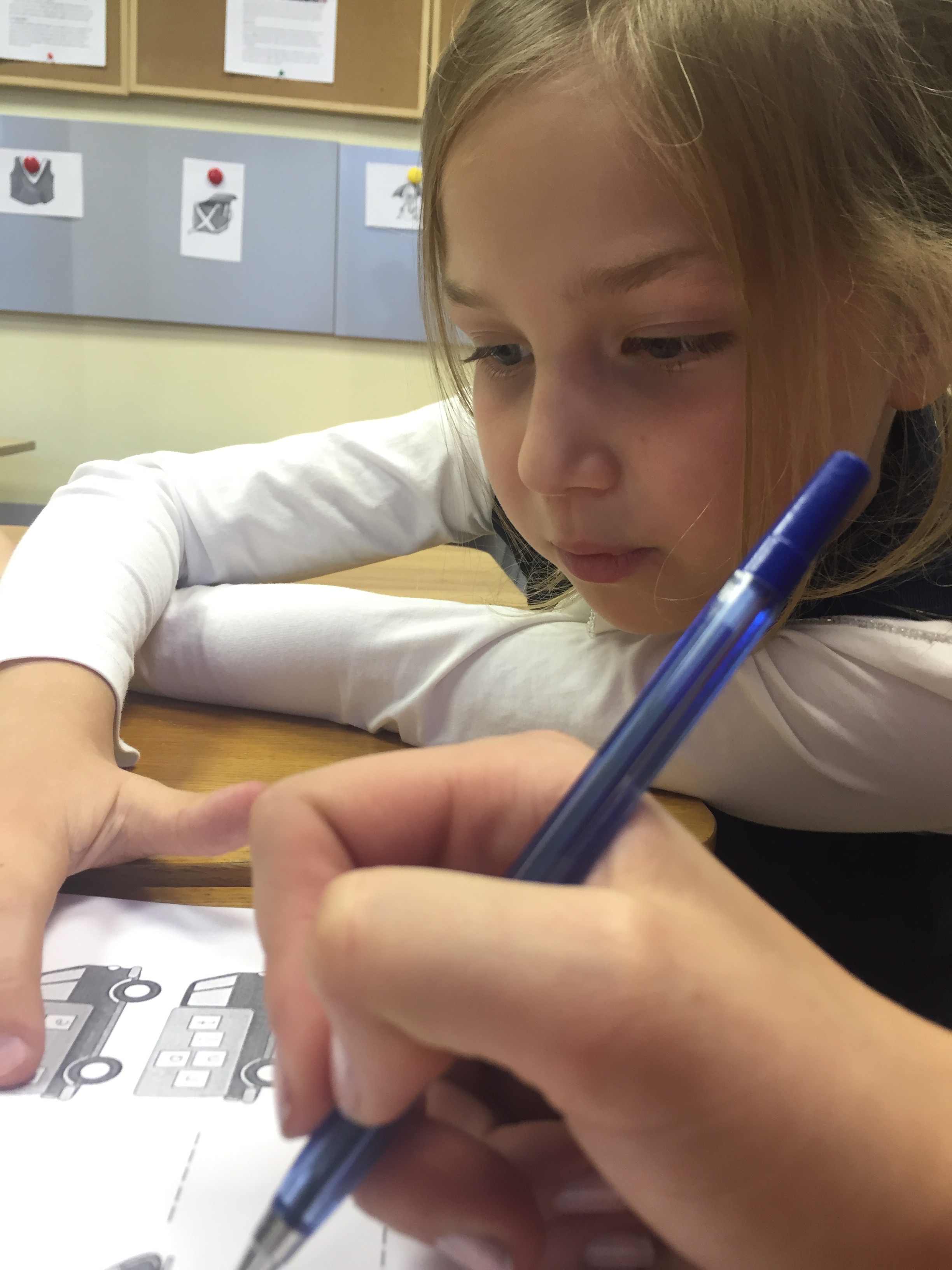Hearing the mantra of a child’s laughter can bring great joy. In a similar regard, receiving a kind look from a child can save you from your own darkness. Children absolutely fascinate me. Please refer to the photo below, where you will see a lovely little darling squatting to play with the dirt. What you can’t see pictured in this photo is that the child is really in front of the Catherine Palace, which with nearly 1 kilometer in circumference it is the most grandiose summer residence in all of Russia. What’s comical is that the little girl was more intrigued by the dirt, on which hundreds of tourists had walked on earlier that day, than an 18th century triumph.
It is this very fascination I have with the minds and personalities of youngsters that urged me to find a volunteer opportunity that involved youth to supplement my study abroad experience. The demand for English speakers is enormous in Russia, as the value of learning the international language of business and commerce is appreciated by many. Also, old stereotypes of an economic system fueled by vodka and general lawlessness have made native English teachers scarce in Russia. The demand for native speakers to teach English in Russia far exceeds the supply. With this in mind, I came across an opportunity to volunteer as an English teacher for first through eighth graders at a private academy about a half an hour outside of the city.
The English lessons commence after the students’ core classes and extracurricular activities have ended, leaving me with usually very drained students to work with. Clearly, an efficient plan needed to be implemented if I wanted my pupils to absorb as much knowledge in the limited time we had together. I noticed that combining both a communicative language approach (vocabulary and conversation exercises) and an interactive approach (opportunities in lessons for both speaking and listening), the kids started to build a basic understanding of English.

The classroom where the English lessons take place and subsequently where students build their foundation as future leaders.
Once a week, I get individual time with every student and depending on their proficiency level, I facilitate question-and-answer sessions, Simon Says games, and deeper discussions on a variety of topics. One young girl in particular warms my heart like no other as she greets me in her best English and smiles with her newly growing adult teeth. Together, we read interesting tales and later complain about things like “silent E’s” in the English language. I can really see the wonder in her eyes.
Teaching the language was certainly not as challenging as finding topics to discuss with some of the older students in the academy. The academy I volunteer at is quite prestigious, and therefore only attended by those who can afford it. I struggled speaking on the topic of public transportation in the city with one of my students as he very loudly grimaced at my mentioning of the St. Petersburg metro system (a quite fascinating and efficient system in my opinion). He couldn’t imagine himself riding in such a dirty and crowded cart when he could very easily be transported by his mother’s luxurious BMW. Certainly a response like this can infuriate many Russian citizens, particularly the estimated figure of 70 percent that is below the middle class. My first taste of the the wealthier side of Russia unexpectedly came from a young pupil of mine. I realize that his upbringing leaves public transportation out of his daily rhetoric.
While this attitude about elements of different social classes can certainly become more developed one day, a positive change for the low-income Russians is unlikely to come anytime soon. The highly monopolistic economy that’s controlled by a small number of political-business elites is not only slowing down the social mobility from the middle to the upper-middle class, but could even cease as a result of the current crises (low oil prices, Western sanctions, and deep-set economic problems). When the reality stands out to be very grim, I am reminded that I myself am still young and capable of making a change. I hope that by teaching students the English language, they too will become interested in ways they can use their abilities to make a positive impact. Who knows, maybe one of my pupils will save the Russian social class system one day.





